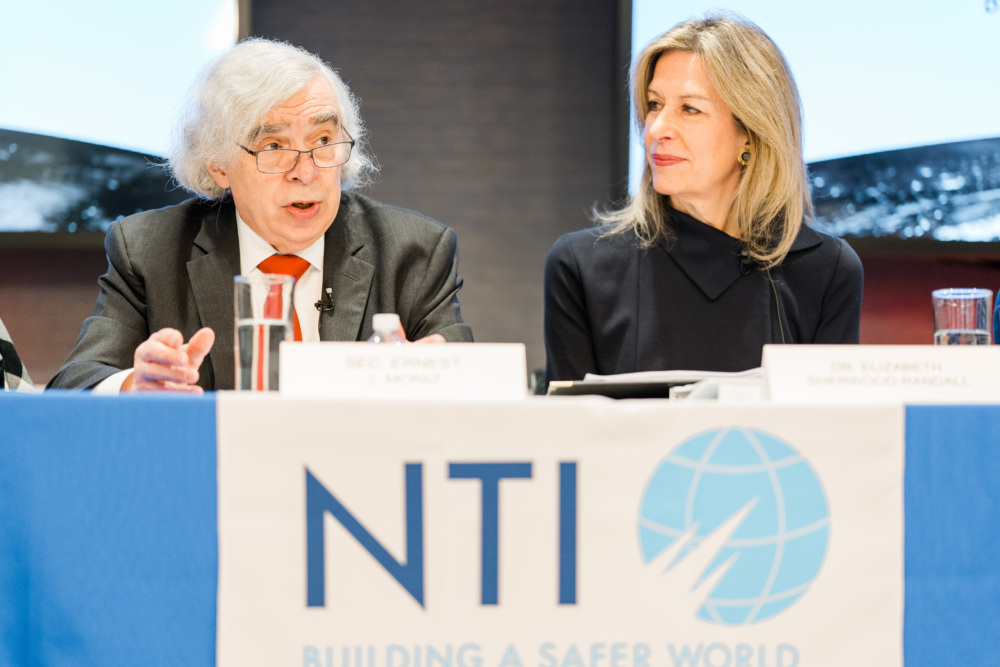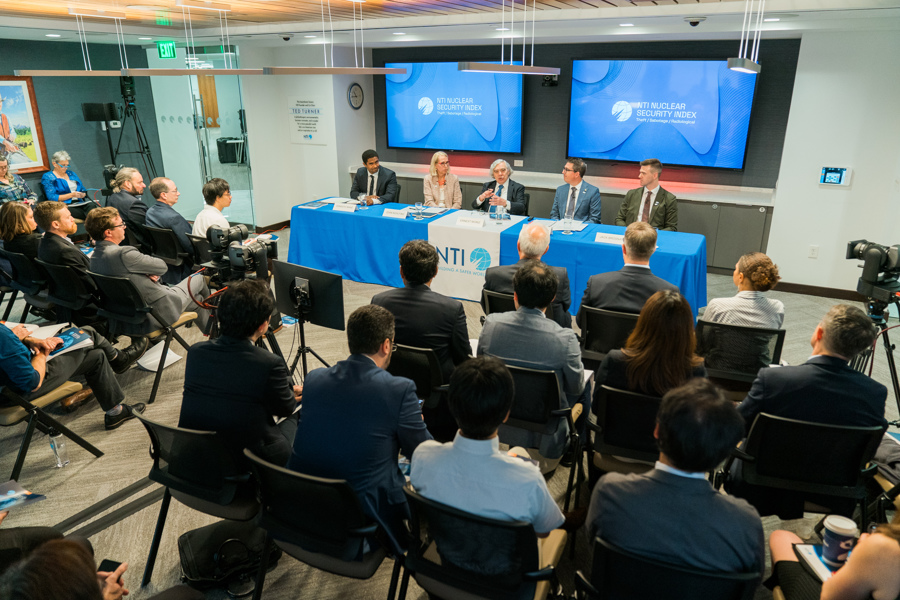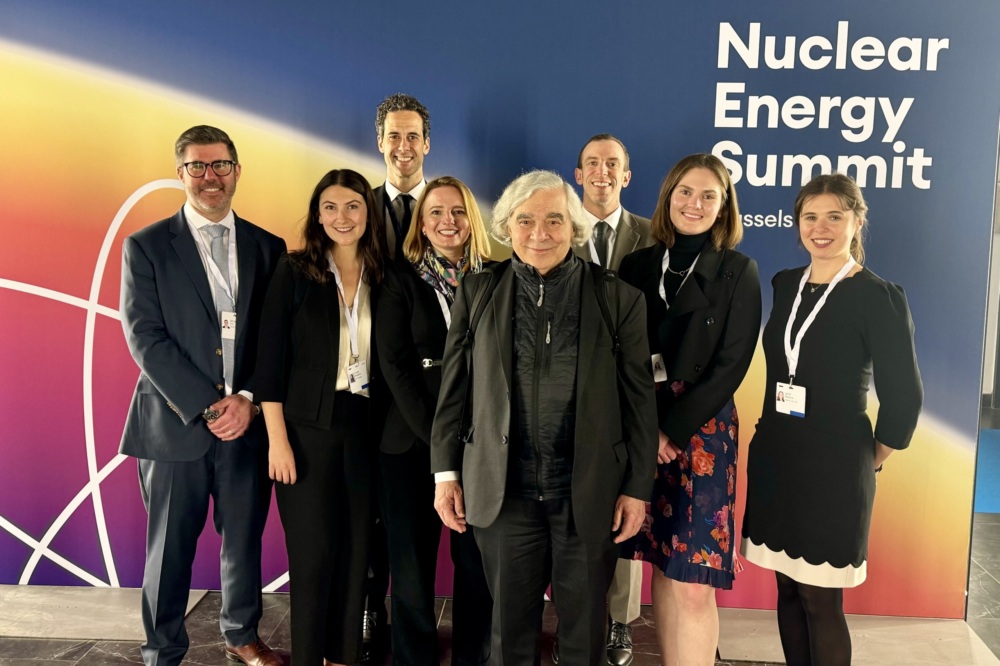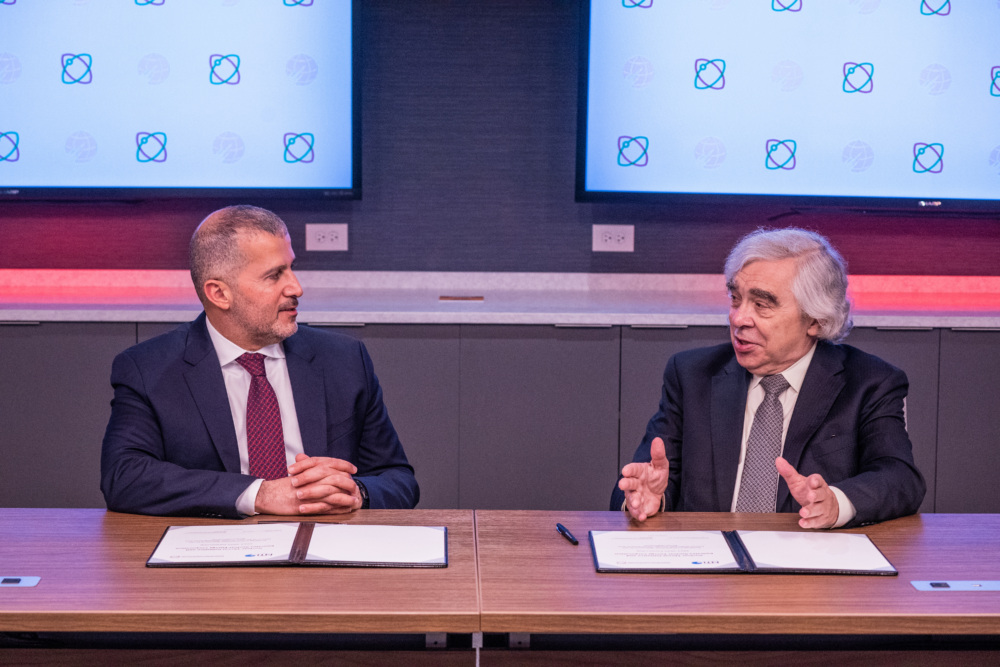Countries and Areas with Greatest Responsibility are “Derelict in their Duty”
The NTI Nuclear Security Index for the first time finds that nuclear security conditions are regressing among the dozens of countries and areas with weapons-usable nuclear materials and nuclear facilities. This erosion of nuclear security comes at a time when risk environments are growing more dangerous and overall stockpiles of weapons-usable nuclear materials are increasing at an alarming rate.
“The bottom line is that the countries and areas with the greatest responsibility for protecting the world from a catastrophic act of nuclear terrorism are derelict in their duty,” the 2023 NTI Index reports. “This is a particularly disheartening development with geopolitical and economic instability, violent non-state actors, environmental disasters, and cyber attacks all on the rise.”
Two years after the COVID-19 pandemic highlighted the need for prevention, preparation, and accountability, and as Russia willfully endangers Ukraine’s nuclear power plants and faces questions about the security of its own nuclear arsenal, the NTI Index finds a host of troubling developments: stocks of weapons-usable plutonium at civilian nuclear facilities have grown rapidly; little progress has been made since 2020 toward improving security culture and insider threat prevention in countries and areas with weapons-usable nuclear materials and nuclear facilities; and more than a third of countries and areas with nuclear facilities have no regulatory requirements in place for protecting nuclear infrastructure during a natural or human-caused disaster.
The 2023 NTI Index did reveal some bright spots. For example, global norms against civilian use of highly enriched uranium—a weapons-usable nuclear material—are solidifying as inventories gradually decline. The NTI Index also shows that progress is possible over time. Present challenges notwithstanding, countries have made significant improvements since the first NTI Index, released in 2012, tracked and reported on nuclear security conditions worldwide.
Amid escalating threats to nuclear security, NTI Co-Chair and CEO Ernest J. Moniz called on today’s leaders to prevent hard-fought progress on nuclear security from unravelling: “Governments, international institutions, industry, and civil society, with the support of visionary leaders, have risen to meet moments of great peril in the past. In this new era of instability, it is crucial that the global nuclear security architecture be fortified to prevent nuclear catastrophe. Leaders have an obligation to rise to this challenge. It is time for them to step up to the task.”
Developed in partnership with Economist Impact and now in its sixth edition, the NTI Nuclear Security Index is internationally recognized as the premier resource and tool for tracking progress on global nuclear and radiological security across 175 countries and Taiwan.
2023 Selected Findings and Recommendations
- Civil stockpiles of separated plutonium are growing rapidly, with the biggest increases coming from commercial reprocessing. To stem the growth of these stockpiles, governments must cap separated plutonium inventories at current levels, existing reduce stockpiles as much and as quickly as possible, champion practical non-weapons- usable alternatives to plutonium, and avoid nuclear energy technologies that involve a plutonium fuel cycle.
- Amid increasingly volatile risk environments, many governments are not demonstrating the capacity to meet today’s nuclear security challenges. Governments must prioritize nuclear security amid periods of heightened instability, carefully consider the ramifications that potentially inflammatory policy decisions have on nuclear security, and require nuclear operators to increase the resiliency of facilities.
- Countries and areas with weapons-usable nuclear materials and nuclear facilities made no progress in two crucial and mutually reinforcing areas of nuclear security: security culture and insider threat prevention. Addressing this vulnerability requires a holistic approach: governments must establish and strengthen programs for identifying and mitigating insider threats; nuclear operators must create programs to strengthen security culture; regulators, intelligence organizations, law enforcement, industry, and non-governmental organizations must increase information sharing around nuclear security incidents; and civil society organizations must demand and support stronger nuclear security around the world.
- Countries in the Global South have made the biggest improvements to their nuclear security conditions, though there is still significant work to be done. They must ratify the amended Convention on the Physical Protection of Nuclear Materials if they have not done so already and subscribe to the International Atomic Energy Agency’s nuclear security information circulars.
- Since 2020, countries and areas have made minimal progress on radioactive source security and are not sufficiently adhering to baseline radiological security measures. They must make radiological security a bigger priority by establishing regulatory measures to track and control the movement of radioactive sources, enacting basic laws to protect radioactive sources from theft, replacing high-activity radioactive sources.
Visit the NTI Index website to compare results across countries and areas, explore what countries and areas can do to improve their scores, and download the Excel data model.
About NTI
NTI is a nonpartisan, nonprofit global security organization focused on reducing nuclear and biological threats imperiling humanity. Founded in 2001 by former U.S. Senator Sam Nunn and philanthropist Ted Turner, who continue to serve as co-chairs, NTI is guided by a prestigious international board of directors. Ernest J. Moniz serves as co-chair and chief executive officer; Joan Rohlfing is president and chief operating officer. Visit NTI at www.nti.org.





